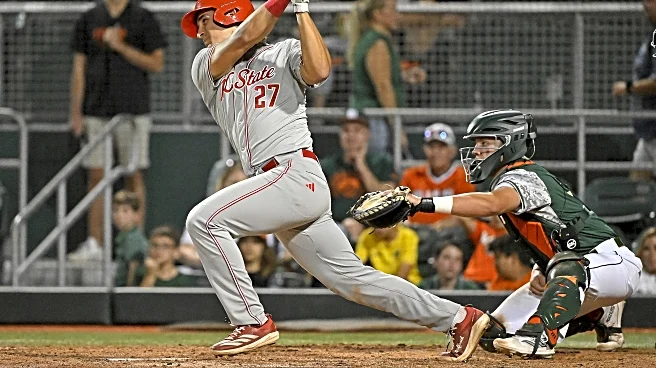What's Happening?
The Democratic Republic of Congo's mining regulator has announced new rules to enforce cobalt export quotas, effective October 16. Companies failing to export their allocated volumes, breaching environmental or tax regulations, or transferring quotas to third parties will face revocation of their quotas. This move follows a months-long ban aimed at controlling oversupply and influencing global cobalt prices. The new 'use-it-or-lose-it' regime could impact global electric vehicle supply chains if major producers do not comply. China's CMOC and Glencore, the top cobalt producers, have secured significant quotas for the fourth quarter of 2025, with allocations of 6,500 and 3,925 tonnes respectively. Other companies, including Congolese Gecamines JV and Entreprise Generale du Cobalt, have also received allocations. Companies must prepay mining royalties based on monthly quotas and current cobalt prices before shipments. Unused allocations will be forfeited and reallocated to a strategic reserve for national projects starting January 1, 2026.
Why It's Important?
Congo's enforcement of strict cobalt export quotas is significant for the global electric vehicle industry, which relies heavily on cobalt for battery production. The new regulations could disrupt supply chains if major producers fail to comply, potentially affecting production costs and availability of electric vehicles. By asserting control over cobalt exports, Congo aims to stabilize global prices and ensure environmental and tax compliance. This move highlights the strategic importance of cobalt as a critical battery metal and Congo's role as a dominant player in the market. Companies that adhere to the new rules may benefit from stable allocations, while non-compliant firms risk losing access to this vital resource.
What's Next?
Starting January 1, 2026, any unused monthly cobalt allocations will be reallocated to a strategic reserve controlled by ARECOMS for projects of national importance. This could lead to increased competition among mining companies to secure their quotas and ensure compliance with environmental and tax regulations. Major stakeholders, including electric vehicle manufacturers and battery producers, may need to adjust their supply chain strategies to accommodate potential disruptions. The global market will closely monitor Congo's enforcement of these rules and their impact on cobalt availability and pricing.
Beyond the Headlines
The enforcement of cobalt export quotas by Congo's mining regulator raises ethical and environmental considerations. Ensuring compliance with environmental regulations is crucial for sustainable mining practices and reducing the ecological impact of cobalt extraction. The strategic reserve for national projects may also reflect Congo's broader economic and developmental goals, potentially influencing local communities and infrastructure development. The global reliance on cobalt underscores the need for responsible sourcing and transparency in supply chains, which could drive industry-wide changes in sustainability standards.











